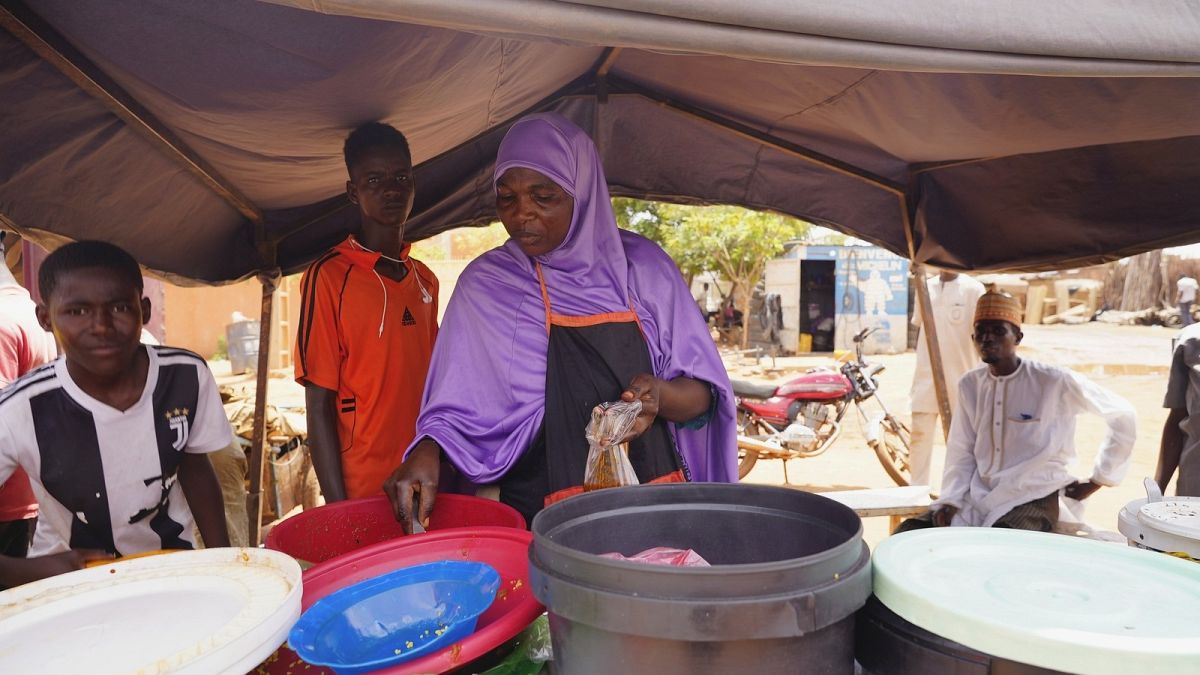Niger was seen as the last bastion of democracy in the Sahel region. The ousting of its democratically elected President is a harsh setback for EU efforts to address the double-edged challenge of security and development in the region.
On his visit to Niger in early July, the EU’s top diplomat Josep Borrell described the country as an essential EU partner at the heart of the Sahel, the semi-arid region that stretches West to East south of the Sahara desert.
Just weeks later, Niger became the latest domino in a row of states that have toppled into the hands of military juntas.
The European Union and its member states are the Sahel’s biggest donors of security and development aid, aimed at helping the region address the interconnected challenges of armed conflicts, chronic poverty and terrorist threats, all of which are compounded by vulnerability to climate change.
But EU strategies have failed to prevent conflicts from splintering across the region. Since 2021, military coups have successfully tumbled the governments of Burkina Faso, Mali and Guinea. With these states now backing the putsch in Niger, Europe's strategy in the Sahel risks unravelling.
EU support ‘fragmented’
The EU has spent an estimated €8 billion on security and humanitarian aid in the Sahel since 2014. It also channels funds through the Sahel Alliance of 12 countries, currently presided by Germany, which has spent €22.97 billion on cooperation projects to date. Member states also have their own Sahel initiatives, including military missions aimed at containing sprawling jihadist groups.
France’s nine-year anti-insurgent mission in Mali, which ended last year, has been described as counterproductive, with terrorist insurgency spiralling and France’s popularity amongst Malians plummeting in opinion polls.
But Niger was considered a bastion of hope.
"The West saw Niger as a successful military partnership. Nigerien security professionals were regarded as receptive to support and were better at fending off threats. But naturally, there has been concern about political stability for some time, with stability seen as tentative and fragile," Andrew Lebovich, Research Fellow at the Clingendael Institute, said.
Western and EU actors have only recently managed to coordinate operations.
“The collaboration between European actors has become more constructive over recent years, but the more actors there are, the more resources are also bound on the country partner's side. Beyond, there is - structurally - no coherent European leadership, and this brings about fallouts which are inevitable," Volker Hauck, senior executive at the centre for Europe-Africa relations, told Euronews.
“There are still differing interests at the political level, including between Brussels and the member states,” he added.
Suspension of funds potentially devastating
Western budget support to Niger has been suspended in response to the coup, risking further impoverishment.
"Europe and the US have over the years invested an important amount of military assistance, political capital and development and cooperation funding," Lebovich said, "Niger was dependent on some 45% of its funding from international actors. If that aid remains cut off, it could be devastating to Niger and its citizens."
Replacing the funds will be challenging, with the West African Central Bank halting Nigerien transactions and freezing assets.
“If they are very determined they might find alternative ways of replacing their assets, but it’s inevitable that the whole country will destabilise," Hauck explained.
European ‘legitimacy’ undermined
Many world powers have a strategic, commercial presence in the Sahel, including China and Turkey. Europe and the West have found themselves competing in a complex web of foreign influence.
In recent years the presence of Russian mercenaries such as the Wagner group has increased, particularly in Mali, despite Bamako repeatedly denying their presence. Wagner’s leader Yevgeny Prigozhin appeared to endorse the Niger coup in a voice message posted on social media channels this week.
With Western capacity to support the Sahel now undermined further, Europe faces a deeper, underlying problem of legitimacy.
“Niger was key for European legitimacy in the region: it showed it was possible to support partners which aligned with EU values and interests in one of the most complex regions of the world,” Hauck said.
An intersection for migrants
Millions of forcibly displaced people, porous borders and organised crime groups make Niger and the wider Sahel a convenient corridor for migrant smugglers between sub-Saharan Africa and the Maghreb.
In 2022, conflicts drove the forcibly displaced population in the Sahel to 4.1 million people, up from 3.6 million the year before. In response, the EU and Niger launched an operational partnership to tackle migrant smuggling, which involved a working arrangement with Frontex, the EU border agency.
Increasing instability and insecurity could increase migratory flows, and the EU's debilitated position of influence could hamper its efforts to cooperate with Sahel countries to curb the activities of illegal migrant smugglers, according to Hauck.
Niger's future uncertain
While the Niger coup has put the international community on alert, the newly proclaimed leaders have so far broadcast an image of stability. But as the ECOWAS bloc of African countries threatens to use force, Niger's future hangs in the balance.
European efforts to support Niger in curbing terrorism, tackling poverty and preparing for climate-related threats are also severely undermined. Experts believe that in a country so heavily dependent on foreign aid, which now risks being cut off permanently, citizens will be the first ones to feel the harsh repercussions.
